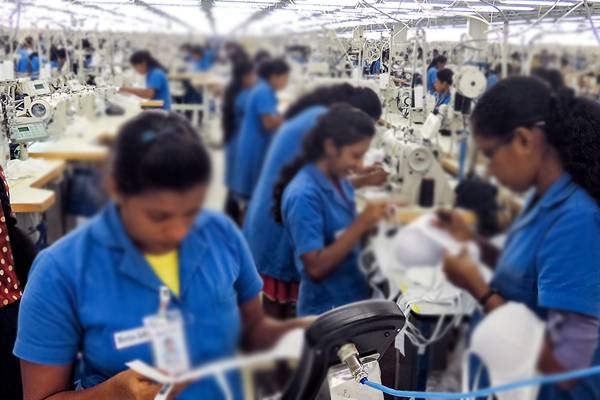The Free Trade Zone Manufacturer’s Association (FTZMA) yesterday called on the Government not to change the compensation ceiling of Rs.1.25 million given to terminated employees as such a move would place additional pressure on employees already struggling with COVID-19.
The association has written to Labour Minister Nimal Siripala de Silva, appealing for the relevant legal changes not to be made to the Termination of Employment of Workmen (Special Provisions) Act (TEWA).
“We have come to know that the Ministry of Labour has taken a decision, and is in the process of amending the TEWA in order to remove the maximum ceiling of Rs.1.25 million that should be paid as compensation if an employer terminates an employee both under Sections 2 and 6 of the Act,” the letter said.
“We understand as the Minister in charge of the subject, you have the authority to bring and amend legislations as appropriate for the wellbeing of the working people in the country. However, the usual practice of the Ministry was to discuss matters at the National Labour Advisory Council (NLAC) at the first instance. That is the democratic way of doing things with regard to policy related matters in particular, we believe.
“The letter went on to warn that any change to the current ceiling could “seriously damage the continuity of business, investment, and generation of employment opportunities”.
The Association pointed out that the legislation was enacted in an environment where Sri Lanka was implementing an inward-oriented economic policy with prime objective of protecting employment; but argued aspects envisaged by the legislation at that time have changed now.
It emphasised the country has moved away from such socioeconomic policies to open market economic policies but the labour market remained unchanged with highly ridge conditions, hampering investment and limiting the creation of employment opportunities.
The association said legislation such as TEWA could undermine Sri Lanka’s quest for foreign investment as under TEWA, an employer can not dismiss an employee except for serious disciplinary infractions, unless there is prior written consent of the employee or prior written approval by the Commissioner General of Labour (CGL). In effect, an investor does not have the freedom to reduce its workforce in order to adjust to the changing business environment.
“It is mandatory for an employer to obtain prior approval of the CGL under Section 2 of the TEWA to terminate an employee even under unprecedented shock such as the COVD-19 pandemic and business instability. The CGL’s decision takes an unjustifiable longer period and affected employees remain on the payroll until the decision is made. Such practices harm the investment climate, increases business risks and thus, reduce the amount of investment and the number of jobs created.”
Sri Lanka does not permit hire and fire policies that employers in many other countries are allowed. Sri Lanka is the fourth highest severance paying country in the world for redundancy dismissal (World Bank Doing Business). Exclusively restrictive legislations discourage formal job creation, the letter added.
TEWA applies to employers being employed with 15 or more employees. This threshold in India is 50. Total employed population in Sri Lanka is about 8 million of which TEWA is applicable for more than 1 million workers.
“According to EPF data, there are about 5,000 companies employing 50 or more workers each. The total employment of these companies is about 1.3 million and all of them are covered by TEWA. So that, if the Rs. 1.25 million sealing is removed, companies become liable to pay maximum 48 month salary for each worker terminated.
“This would severely increase the cost of production and kill business, investment and creation and protection of employment, especially in a situation that employers are paying 50% of the basic salary or Rs. 14,500 for each worker who have been made to stay at home as work cannot be offered due to COVID-19.”
(FT)

